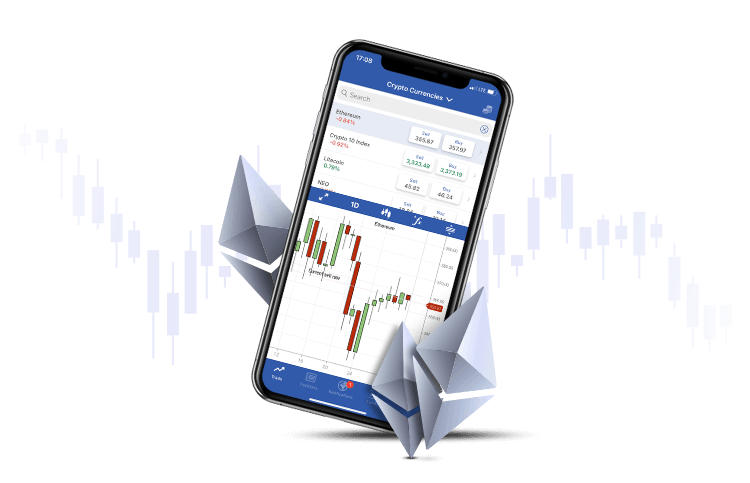What Moves Ether’s Price?
As of September 2020, Ether, the currency that fuels Ethereum’s blockchain platform, is the second largest cryptocurrency by market capitalization after Bitcoin.
The Ethereum network took the blockchain concept from Bitcoin and looked to build on it for incorruptible contracts and Dapps (decentralized applications). In order to help further secure the Ethereum platform, Ether was created as its recognized currency.
Is there a limit to the amount of Ether that will be released?
Ether has no limit to how much currency can be created.
Ether, like Bitcoin, is given to individuals who help support the platform by providing computing power from privately owned servers or cloud space. This process is referred to as ‘Mining’. Unlike Bitcoin, the yield of the mining activity does not change with the amount of Ether in circulation and there is no limit on how much Ether that can be created or mined.

Illustrative prices.
Which factors affect Ethereum and Ether?
Ethereum, and with it Ether, are user-supported products that are built on a ledger system, allowing all computers on the network to see the full history of all transactions. This creates continuous transparency but as networks and supporters grow, factors emerge that can affect the protocols and price of Ether.
Hard ForksEvery individual who lends processing power to any blockchain network must agree to follow 100% of the network's protocol in order for it to work properly. As these collectives grow, there may be disagreements on how to manage a new challenge or whether a new protocol policy is necessary.
When new protocols are rolled out, a group of individuals may disagree with them and refuse to update their systems. This break from the main protocol is referred to as a Hard Fork.
While the old protocols users usually fade out over time and have not shown to have a noticeable historical effect on the valuation of Ether, Hard Forks do bring the potential for volatility. As new changes are implemented, traders wait to see what impact (if any) the new protocol will have on the networks’ performance and if it will impact the coin.
For example, if a protocol allows for miners to charge more to process blocks or transactions, it could create inflation, devaluing the cryptocurrency.
Trader SpeculationEther is not tied to a central bank, and as such its price fluctuations are influenced by trader speculation. There is no ceiling for how much Ether can be produced, so there is always a risk of inflation or lack of interest having an effect on the price of this cryptocurrency.
Unlike other cryptocurrencies, Ether is tied directly to the Ethereum platform, ensuring its usefulness for the future as individuals dabble in Dapps and other blockchain features such as Smart Contracts.
How to trade Ethereum CFDs?
Ethereum’s value is traded using the platform's currency, Ether.
Ether can be traded using Contracts for Difference (CFDs). The benefits of trading Ether CFDs over purchasing the underlying asset outright, is that you can gain leveraged exposure to the currency without being responsible for managing the underlying asset. Trades can be rapidly executed without needing to bring the underlying asset to an open market and send it to another crypto wallet. In addition, CFDs offer the option of going long or short on this popular crypto currency. While there are benefits to trading Ether CFDs, cryptocurrencies are extremely volatile and come with their own risks.
If you believe that Ether will increase in value, you can open a Buy position which means you are entitled to the difference between the price at which you opened the position and a higher closing price. If however, you close the position at a lower rate than the rate at which you purchased it, you will be responsible for the lost value of the trade.
If you believe that Ether will decrease in value, you can open a Sell position. This will short the currency, allowing you to recognize profit from the difference between the opening price and the lower closing price. If however you close the position at a higher price than what you opened it at, you will be responsible for the difference and incur a loss.
For traders who wish to trade a position based on the movements of Ether against Bitcoin, they can trade CFDs on Plus500’s Ethereum/Bitcoin (ETHBTC) instrument.*
The complexities and various factors influence cryptocurrencies make them highly volatile. When trading CFDs over Ether (Ethereum), you will not be purchasing the underlying cryptocurrency, yet you can gain exposure to the instrument, without having to look for a buyer for your coins.
*Product offerings differ among operators.